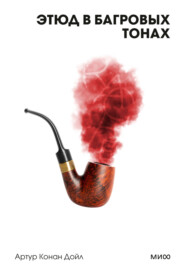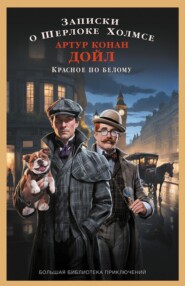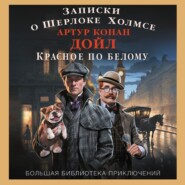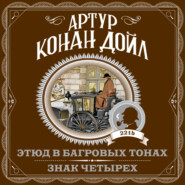По всем вопросам обращайтесь на: info@litportal.ru
(©) 2003-2025.
✖
A Visit to Three Fronts: June 1916
Настройки чтения
Размер шрифта
Высота строк
Поля
Next morning we were down in the front trenches again at another portion of the line. Far away on our right, from a spot named the Observatory, we could see the extreme left of the Verdun position and shells bursting on the Fille Morte. To the north of us was a broad expanse of sunny France, nestling villages, scattered châteaux, rustic churches, and all as inaccessible as if it were the moon. It is a terrible thing this German bar – a thing unthinkable to Britons. To stand on the edge of Yorkshire and look into Lancashire feeling that it is in other hands, that our fellow-countrymen are suffering there and waiting, waiting, for help, and that we cannot, after two years, come a yard nearer to them – would it not break our hearts? Can I wonder that there is no smile upon the grim faces of these Frenchmen! But when the bar is broken, when the line sweeps forward, as most surely it will, when French bayonets gleam on yonder uplands and French flags break from those village spires – ah, what a day that will be! Men will die that day from the pure, delirious joy of it. We cannot think what it means to France, and the less so because she stands so nobly patient waiting for her hour.
Yet another type of French general takes us round this morning! He, too, is a man apart, an unforgettable man. Conceive a man with a large broad good-humoured face, and two placid, dark seal's eyes which gaze gently into yours. He is young and has pink cheeks and a soft voice. Such is one of the most redoubtable fighters of France, this General of Division D. His former staff officers told me something of the man. He is a philosopher, a fatalist, impervious to fear, a dreamer of distant dreams amid the most furious bombardment. The weight of the French assault upon the terrible labyrinth fell at one time upon the brigade which he then commanded. He led them day after day gathering up Germans with the detached air of the man of science who is hunting for specimens. In whatever shell-hole he might chance to lunch he had his cloth spread and decorated with wild flowers plucked from the edge. If fate be kind to him he will go far. Apart from his valour he is admitted to be one of the most scientific soldiers of France.
From the Observatory we saw the destruction of a German trench. There had been signs of work upon it, so it was decided to close it down. It was a very visible brown streak a thousand yards away. The word was passed back to the '75's' in the rear. There was a 'tir rapide' over our heads. My word, the man who stands fast under a 'tir rapide,' be he Boche, French or British, is a man of mettle! The mere passage of the shells was awe-inspiring, at first like the screaming of a wintry wind, and then thickening into the howling of a pack of wolves. The trench was a line of terrific explosions. Then the dust settled down and all was still. Where were the ants who had made the nest? Were they buried beneath it? Or had they got from under? No one could say.
There was one little gun which fascinated me, and I stood for some time watching it. Its three gunners, enormous helmeted men, evidently loved it, and touched it with a swift but tender touch in every movement. When it was fired it ran up an inclined plane to take off the recoil, rushing up and then turning and rattling down again upon the gunners who were used to its ways. The first time it did it, I was standing behind it, and I don't know which moved quickest – the gun or I.
French officers above a certain rank develop and show their own individuality. In the lower grades the conditions of service enforce a certain uniformity. The British officer is a British gentleman first, and an officer afterwards. The Frenchman is an officer first, though none the less the gentleman stands behind it. One very strange type we met, however, in these Argonne Woods. He was a French-Canadian who had been a French soldier, had founded a homestead in far Alberta, and had now come back of his own will, though a naturalised Briton, to the old flag. He spoke English of a kind, the quality and quantity being equally extraordinary. It poured from him and was, so far as it was intelligible, of the woolly Western variety. His views on the Germans were the most emphatic we had met. 'These Godam sons of' – well, let us say 'Canines!' he would shriek, shaking his fist at the woods to the north of him. A good man was our compatriot, for he had a very recent Legion of Honour pinned upon his breast. He had been put with a few men on Hill 285, a sort of volcano stuffed with mines, and was told to telephone when he needed relief. He refused to telephone and remained there for three weeks. 'We sit like a rabbit in his hall,' he explained. He had only one grievance. There were many wild boars in the forest, but the infantry were too busy to get them. 'The Godam Artillaree he get the wild pig!' Out of his pocket he pulled a picture of a frame-house with snow round it, and a lady with two children on the stoop. It was his homestead at Trochu, seventy miles north of Calgary.
* * * * *
It was the evening of the third day that we turned our faces to Paris once more. It was my last view of the French. The roar of their guns went far with me upon my way. Soldiers of France, farewell! In your own phrase I salute you! Many have seen you who had more knowledge by which to judge your manifold virtues, many also who had more skill to draw you as you are, but never one, I am sure, who admired you more than I. Great was the French soldier under Louis the Sun-King, great too under Napoleon, but never was he greater than to-day.
And so it is back to England and to home. I feel sobered and solemn from all that I have seen. It is a blind vision which does not see more than the men and the guns, which does not catch something of the terrific spiritual conflict which is at the heart of it.
Mine eyes have seen the glory of the coming of the Lord
– He is trampling out the vineyard where the grapes of wrath are stored.
We have found no inspired singer yet, like Julia Howe, to voice the divine meaning of it all – that meaning which is more than numbers or guns upon the day of battle. But who can see the adult manhood of Europe standing in a double line, waiting for a signal to throw themselves upon each other, without knowing that he has looked upon the most terrific of all the dealings between the creature below and that great force above, which works so strangely towards some distant but glorious end?
ARTHUR CONAN DOYLE.

















